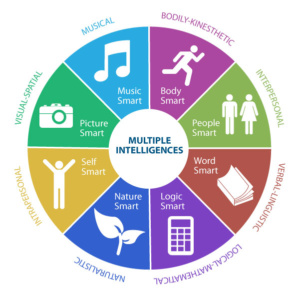Building Habits
Have you ever thought about how many habits you have? The way you get up in the morning is a habit – do you press snooze, or jump right out of bed? The fact that you brush your teeth the way you do is a habit too – some people brush right after they get up, others after breakfast.
Maybe you are conscious of your many habits, but have you ever realized how much time and energy you save by following your habits? Think about how quickly and with so little effort it takes you to brush your teeth. When you compare this to the adventure of getting young children to brush theirs, you can see that creating a habit saves A LOT of time and energy!

A deer trail helps deer get to their destination faster. Something similar happens in your brain to make a habit
A habit begins in your brain: with neural pathways. This means information flows along certain synapses, creating a pathway. If you’ve ever found a deer or rabbit trail in the wilderness, you know what this means. When animals find the best way through brush or a forest, they take that path every time. The frequent use results in a discernable path. This discernable path is a habit.
When you react to a stimulus, think a certain thought, or behave in the same way multiple times, a little “deer path” is made in your brain. This makes that information easier to access. When you’re in that situation again, the same pathway is accessed. What does this mean for your memory?
Building Habits to Improve Memory
Building good habits in a smart way can free up a lot of brain space for you to learn new information and get more important work done. A habit the Career Profiler has established for herself is checking her email at the same time every day. She also encourages her clients to make all their phone calls at the same time – oftentimes, right after lunch is a good time to do this.
This is a memory tip in two ways:
1) Building habits creates brain space for memory, and
2) Habits help ensure important things don’t get lost in the fog. You can’t forget to answer an important email if you have a habit of taking care of emails every day at 9am!
Establishing simple habits for activities you have to do regularly helps you keep your life organized. In the same way that brushing your teeth takes next to no brain power, you can organize your unread messages and set aside the ones that need your immediate attention quickly and without effort.
“I’m done with forgetting appointments and making rookie mistakes!” We hope you are! Making habits can help you achieve this goal! If you need help establishing habits, get in touch the Career Profiler for a free consultation. She can walk you through the areas in your life that can use structures like habits. Building structures allows you free time and brain space to learn new things, start on new projects, or relax!




















